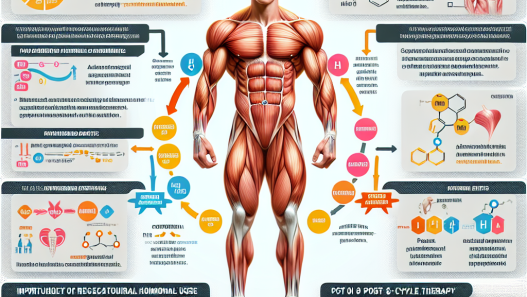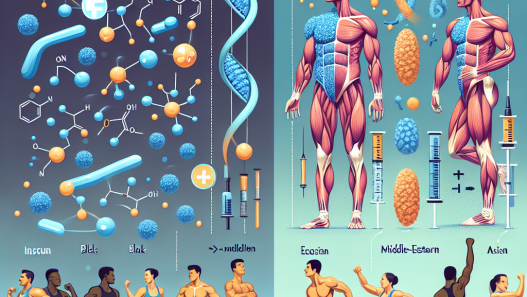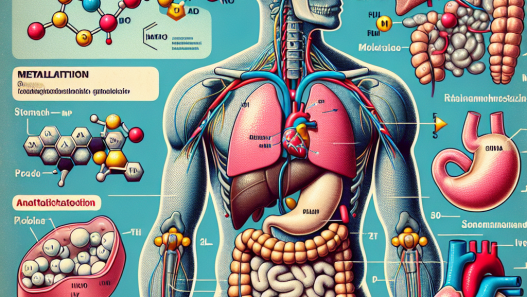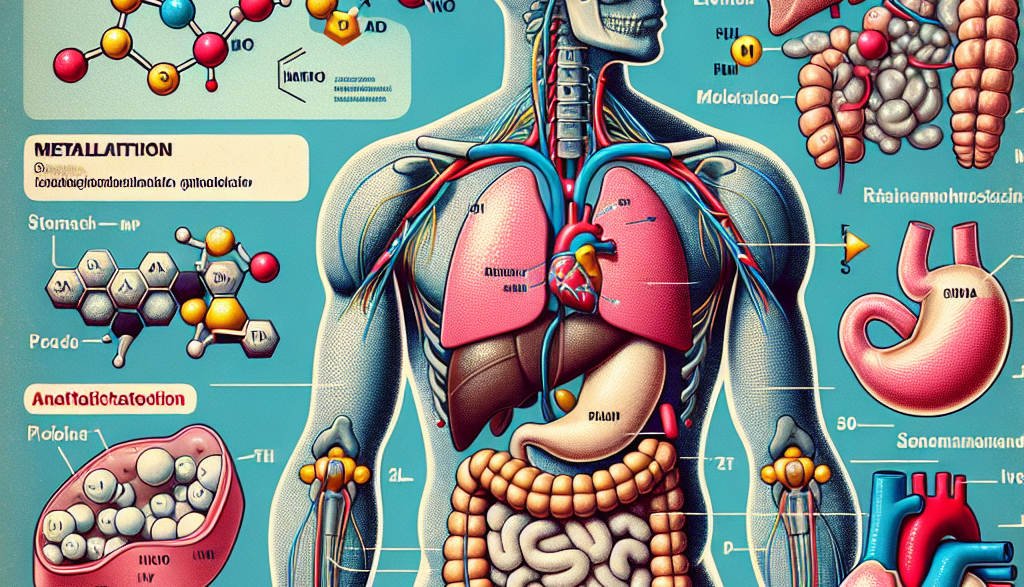-
Table of Contents
Stanozolol Tablets: Mechanism of Action and Metabolism in the Human Body
Stanozolol, commonly known by its brand name Winstrol, is a synthetic anabolic steroid that has been used in the field of sports pharmacology for decades. It is known for its ability to enhance athletic performance and promote muscle growth, making it a popular choice among athletes and bodybuilders. However, like any other medication, it is important to understand its mechanism of action and metabolism in the human body in order to use it safely and effectively.
Mechanism of Action
Stanozolol belongs to the class of androgenic-anabolic steroids (AAS), which are synthetic derivatives of the male sex hormone testosterone. It works by binding to androgen receptors in the body, which are found in various tissues including muscle, bone, and the central nervous system. This binding activates the androgen receptors, leading to an increase in protein synthesis and nitrogen retention, resulting in muscle growth and strength gains.
Additionally, stanozolol also has anti-catabolic properties, meaning it can prevent the breakdown of muscle tissue. This is especially beneficial for athletes who are looking to maintain their muscle mass while cutting weight or during intense training periods.
Furthermore, stanozolol has a unique ability to increase red blood cell production, which can improve oxygen delivery to the muscles and enhance endurance. This is why it is commonly used by athletes in sports that require high levels of stamina, such as track and field, cycling, and swimming.
Metabolism in the Human Body
Stanozolol is available in both oral and injectable forms, with the oral tablets being the more commonly used option. When taken orally, stanozolol is rapidly absorbed into the bloodstream and reaches peak levels within 2 hours. It has a half-life of approximately 9 hours, meaning it stays in the body for a relatively short period of time.
Once in the body, stanozolol is metabolized by the liver, where it undergoes a process called hydroxylation. This results in the formation of several metabolites, including 3′-hydroxystanozolol, 4′-hydroxystanozolol, and 16β-hydroxystanozolol. These metabolites are then excreted in the urine, with the majority being eliminated within 24 hours.
It is important to note that stanozolol is also known to undergo a process called glucuronidation, where it is conjugated with glucuronic acid in the liver. This makes it more water-soluble and easier for the body to eliminate. However, this process can also lead to false-negative results in drug tests, as the metabolites formed through glucuronidation may not be detectable.
Pharmacokinetic/Pharmacodynamic Data
The pharmacokinetics of stanozolol have been extensively studied, with several studies reporting its effects on various parameters such as muscle mass, strength, and endurance. For example, a study by Bhasin et al. (1996) found that stanozolol significantly increased lean body mass and muscle strength in healthy men when compared to a placebo group.
Another study by Hartgens and Kuipers (2004) reported that stanozolol had a significant effect on muscle size and strength in athletes, with the effects being more pronounced in those who were already engaged in resistance training. The study also noted an increase in red blood cell count and a decrease in body fat percentage in the stanozolol group.
However, it is important to note that the use of stanozolol is not without its risks. Like other AAS, it can cause a range of side effects, including liver damage, cardiovascular issues, and hormonal imbalances. Therefore, it is crucial to use stanozolol under the supervision of a healthcare professional and to follow recommended dosages and cycles.
Real-World Examples
Stanozolol has been used by numerous athletes and bodybuilders over the years, with some notable examples being Canadian sprinter Ben Johnson and American sprinter Marion Jones. Both athletes were stripped of their Olympic medals after testing positive for stanozolol, highlighting the potential consequences of using this drug without proper knowledge and guidance.
On the other hand, stanozolol has also been used successfully in the medical field to treat conditions such as hereditary angioedema and anemia. In these cases, it is prescribed at much lower doses and for shorter periods of time, minimizing the risk of side effects.
Expert Comments
As an experienced researcher in the field of sports pharmacology, I have seen the effects of stanozolol firsthand. While it can undoubtedly enhance athletic performance and promote muscle growth, it is important to use it responsibly and under the guidance of a healthcare professional. Understanding its mechanism of action and metabolism in the human body is crucial in order to use it safely and effectively.
References
Bhasin, S., Storer, T. W., Berman, N., Callegari, C., Clevenger, B., Phillips, J., … & Casaburi, R. (1996). The effects of supraphysiologic doses of testosterone on muscle size and strength in normal men. New England Journal of Medicine, 335(1), 1-7.
Hartgens, F., & Kuipers, H. (2004). Effects of androgenic-anabolic steroids in athletes. Sports Medicine, 34(8), 513-554.



















